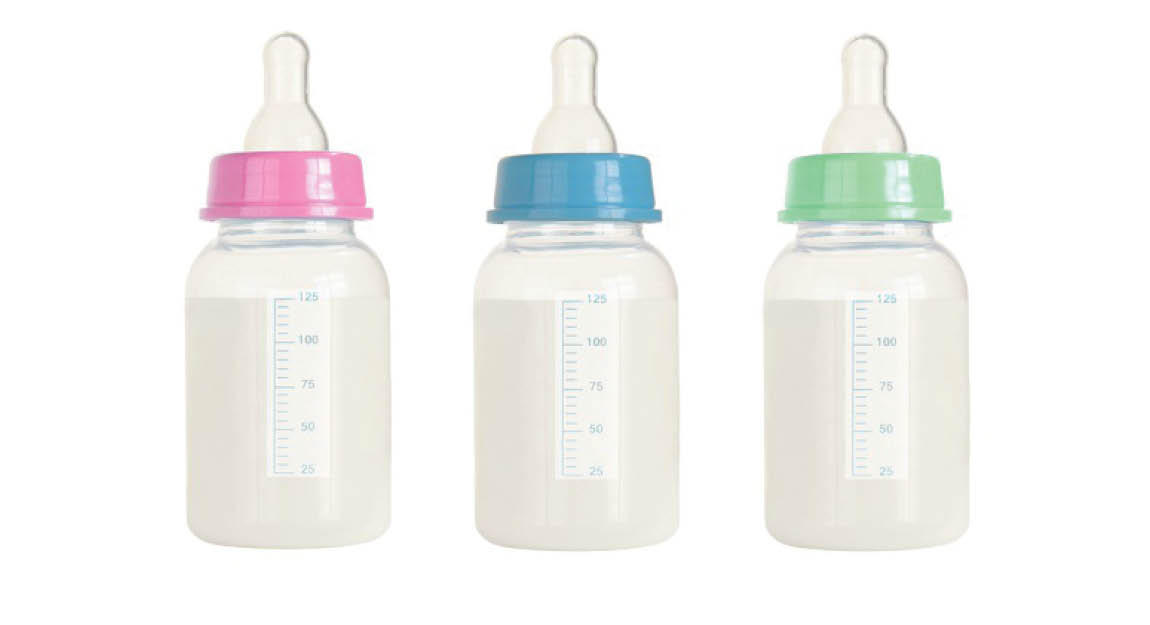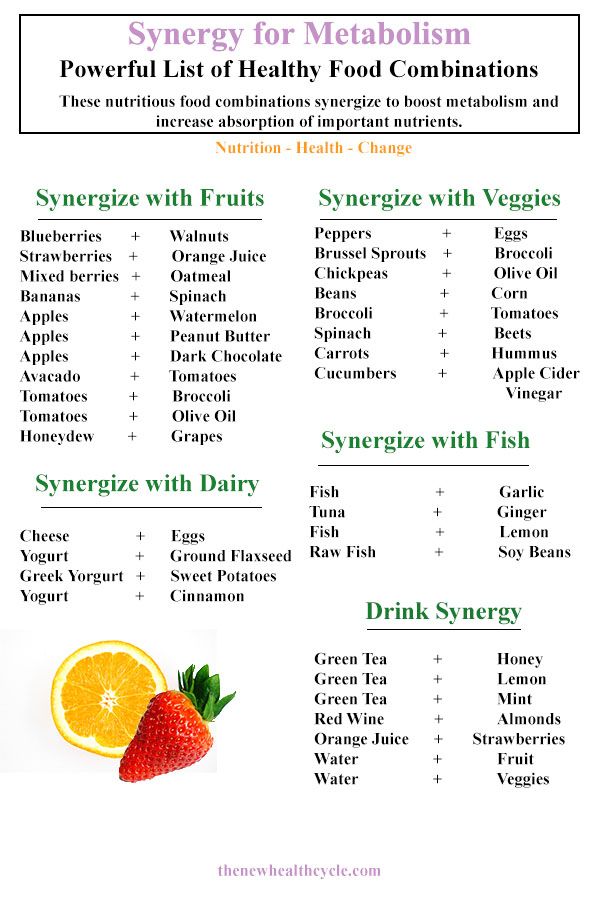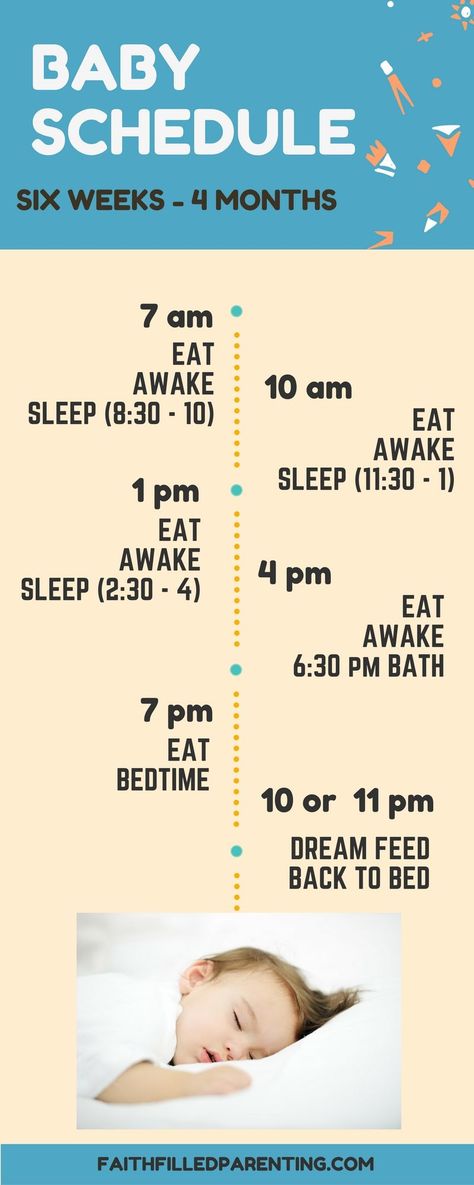Baby snack feeding at night
How to Stop Baby from Snacking on the Breast
Does your newborn need to eat more at each feeding? Learn how to stop baby from snacking on the breast and take a full feeding.
You baby seems to be a “snacker.”
She’ll eat for five minutes at a time, but falls asleep at the breast or dribbles milk as she sucks. She seems to want to breastfeed all day instead of every few hours. With all this snacking, you’re worried she’s never full, and that you’re encouraging bad habits of frequent feedings and short sleep.
These frequent feedings also make it really difficult for you to have any sort of life apart from breastfeeding. And of course, nights are difficult when she wakes up every hour at night to eat—for a mere five minutes, of course—before going back to sleep.
How can you get her to eat more when she refuses to do so for very long?
How to stop your baby from snacking on the breast
If you’re in the newborn stage, here’s the first thing I’ll say: snacking on the breast is pretty common.
This is why we hear about feeding on demand, especially since breastmilk digests quickly and newborns have small stomachs. And if you think about it, your baby had a constant flow of nutrients when she was in the womb not too long ago.
If you’re worried she isn’t gaining enough weight, a check-up with the pediatrician can ease your mind. And more than likely, you’ll be able to lengthen her feeding sessions and stretch her sleep the older she gets.
All that said, is there anything you can do to encourage her to eat more at each feeding session, especially over time?
To start, check with your pediatrician and lactation consultant for professional advice. They’ll know your situation best and can customize a plan that works for you. Then, take a look at these tips to gradually stretch her feedings throughout the day and at night:
1. Keep your baby awake during feedings
I thought I found the best secret when I realized that feedings often left my baby fast asleep soon after.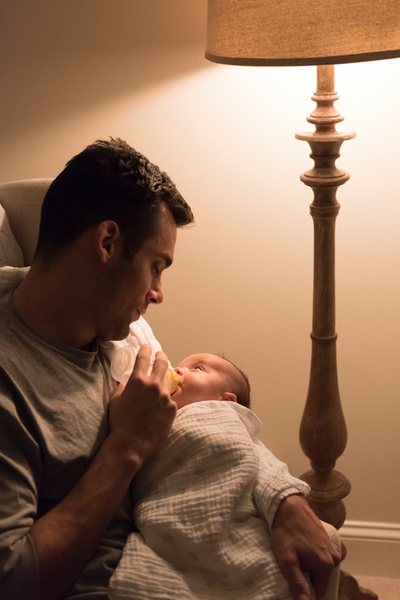 “Now I know how to always make him fall asleep!” I said triumphantly.
“Now I know how to always make him fall asleep!” I said triumphantly.
Except this method had its drawbacks, from creating unsustainable sleep habits to being a human pacifier. And of course, falling asleep usually meant short and frequent feeding sessions.
Instead, try to keep your baby awake during feedings. That way, you’re certain that she’s actually eating and that she eats as long as possible. Stroke her cheek, burp her and switch sides, even change her diaper.
If she still falls asleep, gently wake her up and latch once again to see if she’s willing to keep feeding.
Free download: Do you struggle with getting her to sleep? Her awake time just might be affecting how well she sleeps. Join my newsletter and get One Mistake You’re Making with Your Baby’s Awake Time and discover one mistake you may be making with her awake time.
Don’t make the same mistakes I did—help her fall asleep with this one simple trick! Download it below:
2.
 Feed your baby after wake-up time
Feed your baby after wake-up timePart of the reason your baby snoozes so easily from nursing is that the sucking motion lulls her to sleep. She loves being close to you and might rely on you as a simple way to fall asleep.
But another reason could be her schedule, especially if you feed her right before nap time. She’s already so sleepy by then that feedings could be cut short because she’d rather fall asleep.
Instead, try feeding her after she wakes up, not to fall asleep. For instance, the first feeding can happen after she wakes up for the day. Keep her awake for play time, then, as nap time draws near, encourage her to fall asleep without needing a feed.
Feed her after she wakes up from the nap, and repeat the cycle with play time and another nap. By feeding her after waking up, you run less of a risk that she’ll fall asleep mid-feed.
Here’s how to get your baby to adjust to life outside the womb using a newborn schedule.
3.
 Entertain your baby
Entertain your babyWant to stretch your baby’s wake time between feedings? See what happens if you find more ways to keep her entertained. There’s a chance that she could be eating frequently simply because of boredom.
Now, if you suspect she’s hungry, then of course you should feed her. After all, at this stage, we want to feed on demand, not on our schedule. But sometimes you can delay her fussiness (and your inclination to feed as a way to soothe that fussiness) by entertaining her instead.
Make a list of her favorite activities, from lying on the play mat to being carried around the house. Make faces at her or play peek-a-boo. Lay her under the mobile or read her a book. You may be able to stretch that wake time long enough and, in doing so, her next feeding session as well.
Get ideas on how to entertain a baby.
4. Offer a pacifier
Does it seem like she nurses as a way to pacify herself? Check with her pediatrician or your lactation consultant about offering a pacifier.
You might be able to break the habit of frequent feedings by offering a pacifier instead, especially when it feels like she just ate not too long ago. She might be needing a way to soothe and suck, which a pacifier can help with.
5. Don’t compare your baby to others
The worst feeling is hearing about other babies the same age as yours (or even younger) who are already eating and feeding in longer hour stretches. You assume that you’re doing something wrong, or that you’re setting yourselves up for sleepless nights.
Remember that all babies truly are different. Just as some toddlers, kids, and adults have small appetites or snack frequently, so too do babies. And your baby might take longer to find her rhythm, which you should respect and cater to at this stage.
And if you’re worried you’ll never sleep, you always have the option to sleep train down the line when she’s older and with your pediatrician’s recommendation. Bear with the frequent feedings and short bursts of sleep for now, knowing it’s only temporary.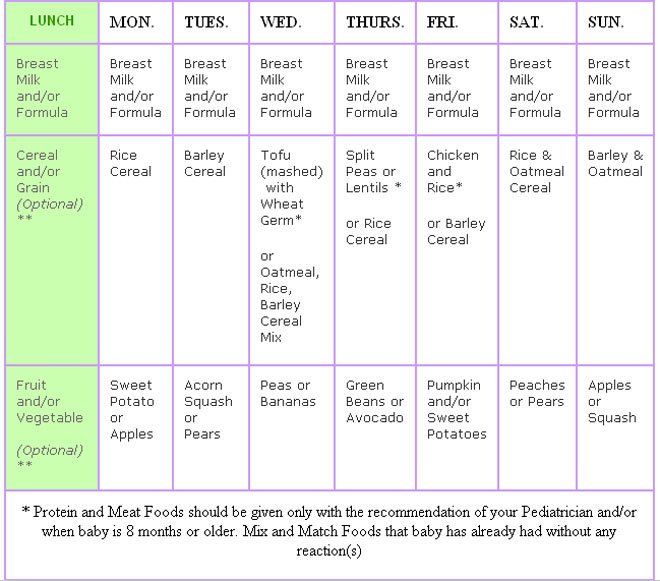
Conclusion
There’s no doubt about it: snack feeding at night or throughout the day is not easy on any mom. You want to make sure your baby takes a full feeding, yet she seems to want to breastfeed constantly. Even when she does, she falls asleep within minutes. How can you get her to eat more at each feeding?
Make sure she’s actually awake during feedings, as this makes her more likely to eat than to simply suck. Feed her after she wakes up, instead of to fall asleep, so that she’s less sleepy when she eats. Stretch her wake time by keeping her entertained, especially if you suspect she’s fussy out of boredom.
Offer a pacifier as an alternative to using you to soothe herself. And finally, stop comparing her to other babies whom you already hear are feeding in long stretches. Every baby develops differently, and you can always teach her to self soothe when she’s out of the newborn stage.
Hang in there, mama! You and your little “snacker” will be out of the woods soon.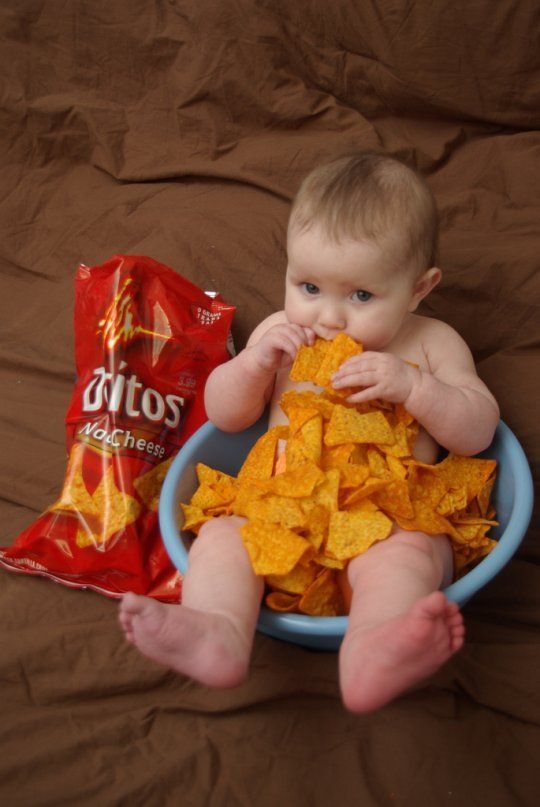
Get more tips:
- 4 Reasons Your Baby Never Seems Satisfied After Breastfeeding
- How to Survive the First Weeks with a Newborn and Toddler
- Why Dads Should Wake Up for Night Feeds
- When Does Breastfeeding Finally Stop Hurting?
- Burping a Newborn After Breastfeeding: Necessary or Not?
Don’t forget: Join my newsletter and get One Mistake You’re Making with Your Baby’s Awake Time—at no cost to you:
The Practically Perfect Baby - Beware the Vicious Snacking Cycle!The Practically Perfect Baby
There’s nothing more detrimental to your sleep-training efforts than allowing him to become a snacker!
In fact, we’d say that HALF of all questions we get at PPB are remedied by eliminating the snacking…so yes, it’s a big problem, but fortunately it’s also a very easy fix.
HAS MY BABY BECOME A SNACKER?
Here’s what the vicious snacking cycle looks like:
Your baby doesn’t come close to finishing a feed at his scheduled feeding times, on a consistent basis (and by not coming close, we mean he takes less than half of the ounces or minutes offered to him) because you are feeding him off-schedule, because he refuses to eat at feedings, because he shows signs of hunger at other times.
WHY IS SNACKING BAD?
For two major reasons:
1) You will end up having to feed your baby small amounts roughly every hour, round-the-clock, versus every 2 1/2 to 3 hours (see PPB Schedule Birth-3 Weeks). When you do the math, he’ll end up getting the SAME AMOUNT of breast milk or formula in a 24-hour cycle that he would have had, had you fed him fully at just his scheduled feeding times.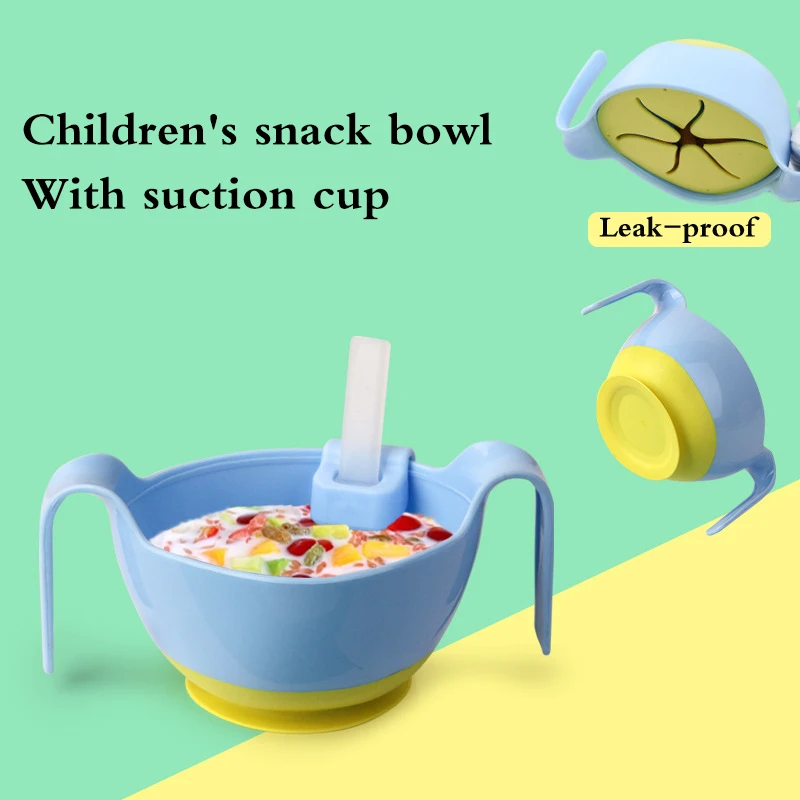 We believe that feeding your baby on-schedule is MUCH, MUCH wiser, easier on him (and you), better for his metabolism, sleep habits, demeanor, and overall health than feeding him on-demand!
We believe that feeding your baby on-schedule is MUCH, MUCH wiser, easier on him (and you), better for his metabolism, sleep habits, demeanor, and overall health than feeding him on-demand!
2) Your baby’s sleep-training will completely suffer because of his snacking. Good sleep habits are taught through scheduling and sleep-training techniques (like our 15-Minute Rule). If your baby is snacking, he will become hungry off-schedule like when he should be napping! Basically, a full feeding = a baby that is much more able to get in full naps.
WHY ARE FULL, SCHEDULED FEEDINGS BEST FOR MY BABY?
No matter how your baby is feeding (breast, formula, or both), he needs you to regulate his metabolism for him so that he can sleep better during his naps and eventually during his longer night-time sleep stretches. The consistency of scheduling creates a regulated metabolism and you can then trust that when your baby is crying, it’s because he’s something other than hungry — and you can attend to that for him instead.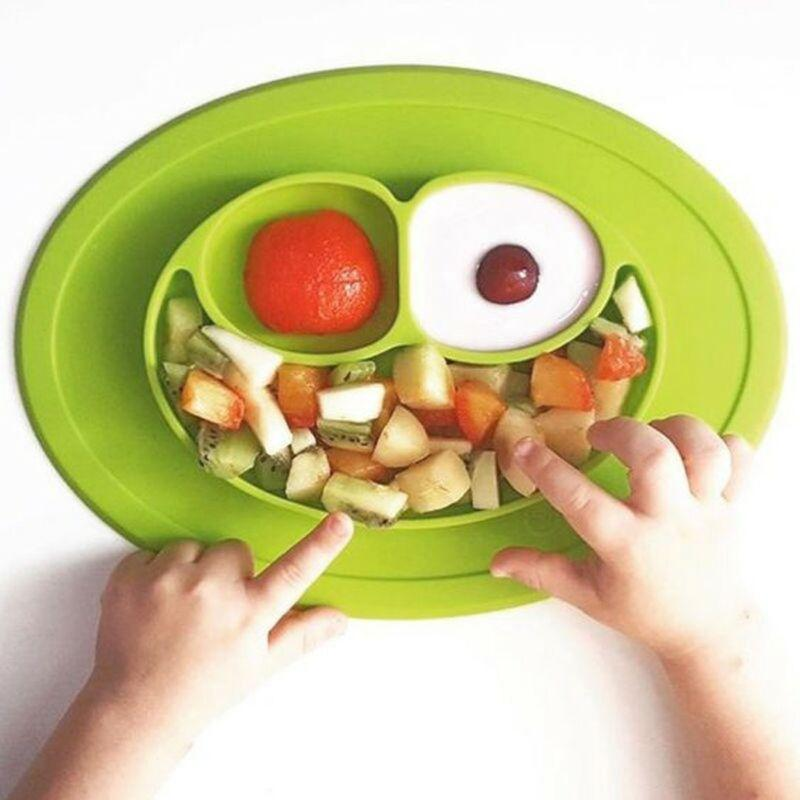 Without the kind of consistency scheduling creates, your baby will have a hard time learning how to adjust his body clock. What he’ll learn very quickly instead is that every time he cries, he’ll be fed — and that of course leads to a snacking, unhappy, confused, and overly needy baby.
Without the kind of consistency scheduling creates, your baby will have a hard time learning how to adjust his body clock. What he’ll learn very quickly instead is that every time he cries, he’ll be fed — and that of course leads to a snacking, unhappy, confused, and overly needy baby.
If you are breastfeeding your baby fully at each feeding, he will first get the lactose-rich fore-milk and then the fat-rich hind-milk. So if he eats only small amounts as short snacks, he may end up only getting the fore-milk. This can upset his stomach because of the high levels of lactose he’ll be receiving. Plus he won’t get the fatty hind-milk he needs to gain weight and to sleep through his naps.
HOW TO GET YOUR BABY BACK ON TRACK:
1) Only feed him at his scheduled feedings. Period. Read why and how, here.
2) Work to keep him up during his feedings. This can be especially tough when he’s a newborn, so get our best tips, here.
3) Work hard to keep him up during his activity time. Here are our favorite playtime activities for your baby.
This 1-2-3 punch will very quickly get your baby back on track. And it will save you from the perils of an exhausted, confused, snacking baby!
Related Posts: Why Won’t My Baby Eat More Ounces?, Baby’s Nightcap, Breastfeeding, Formula Feeding, Combination-Method Feeding, The Feeding Dilemma, Waking Early from Naps, Napping No-No’s, Troubleshooting Naps, Baby Colic, Baby’s Witching Hour, Baby Gas, Sleeping Milestones, Reading Your Baby’s Signs, Get All PPB Schedules, Overtired Baby
Disclaimer
until what age to feed a baby at night
Breast milk is the ideal food for babies, so every mother should strive to maintain breastfeeding for as long as possible.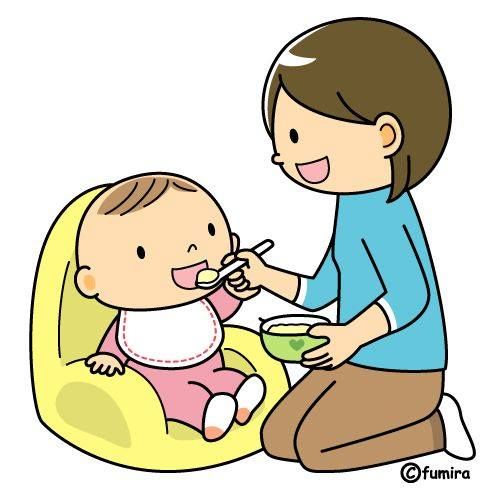 But if for some reason it is impossible, it is important to choose high-quality breast milk substitutes and the optimal feeding regimen, close to the natural rhythm of breastfeeding. The younger the baby, the more often he needs food. Newborn children need to be fed several times at night, older children, from about six months, once. After a year, children can already sleep at night without waking up for feeding.
But if for some reason it is impossible, it is important to choose high-quality breast milk substitutes and the optimal feeding regimen, close to the natural rhythm of breastfeeding. The younger the baby, the more often he needs food. Newborn children need to be fed several times at night, older children, from about six months, once. After a year, children can already sleep at night without waking up for feeding.
Why do newborns eat at night?
In the womb, the baby receives nourishment through the umbilical cord continuously, without separation between day and night. After birth, the volume of the baby's stomach is very small, so he cannot get enough nutrients and vitamins and minerals at one meal. Therefore, the baby needs to eat often, in small portions, so that there is no regurgitation and digestive problems.
Another argument in favor of frequent feedings is a very intensive metabolism in an infant. This is necessary to provide the body with the necessary building blocks and energy during a period of very rapid growth and development. In the first year of life, growth processes are maximum in speed, and in order for a baby to triple its weight by a year and grow by 50% of its original height, it needs to eat often and a lot.
In the first year of life, growth processes are maximum in speed, and in order for a baby to triple its weight by a year and grow by 50% of its original height, it needs to eat often and a lot.
Proper nighttime feeding of babies
Even 20 years ago there was a recommendation to maintain a break at night (from midnight to six in the morning), not to feed the baby. This was explained by the fact that the stomach needs rest, and you need to “deceive” it with some water or give it a pacifier. But today it is already known for sure that the stomach is equally active both during the day and at night. In early childhood, circadian rhythms have not yet been formed and the digestive system works around the clock.
Today, doctors recommend feeding a newborn on demand - he himself determines when to eat and how much milk to suck out for feeding. In the first 2-3 months, a child can wake up up to 3-4 times a night (between 9 pm and 6 am) to attach to the breast, up to six months - up to three times, after six months - once, less often twice.
- When breastfeeding, it is recommended to feed the baby on demand, including at night, giving up the practice of "hungry" motion sickness, the use of pacifiers or water.
- For mixed-fed babies at night, breastfeeding should be preferred. This will also help stimulate lactation in order to increase the amount of milk secreted during the day.
- Formula-fed infants should be fed every 3 hours. Let's say a break of 4-5 hours if this is a child older than 3-4 months.
Until what age should I feed my baby at night?
Many parents think that as complementary foods are introduced, the baby no longer needs nighttime feedings, because he can be fed during the daytime. Yes, of course, the baby already receives more dense food - vegetable, cereal, meat complementary foods. But this does not mean at all that he will not want to eat at night.
In the daytime, children eat a variety of complementary foods, and at night they have a need to attach to the breast, to get enough of breast milk.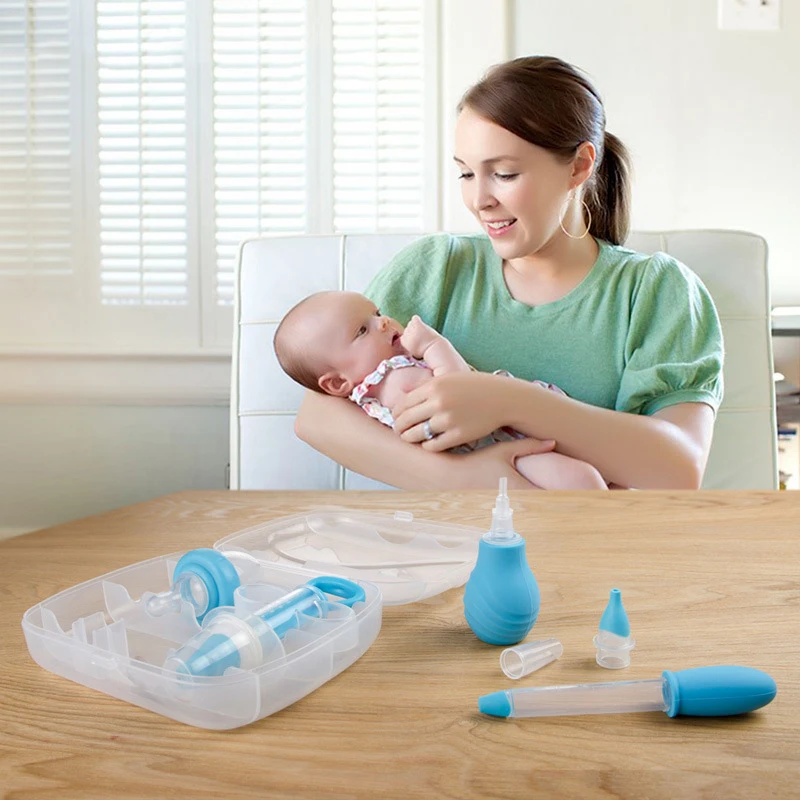 After all, the number of attachments to the breast in the daytime gradually decreases, and babies can compensate for this by waking up at night to feed.
After all, the number of attachments to the breast in the daytime gradually decreases, and babies can compensate for this by waking up at night to feed.
If a child is breast-fed, he may have 1 to 3 nightly feedings until the end of lactation (to fall asleep, actually at night, to calm down and fall asleep). If a child is on artificial nutrition, after a year, milk formulas are almost replaced by other products. Most often, children drink cow's milk or fermented milk products at night, special mixtures for children of the second year of life (“threes” or “fours”).
Most children under three wake up at least once during the night to eat. This is quite normal and does not require any radical intervention from the parents.
Should my baby be weaned from night feedings?
This issue is quite complex and it is solved individually. Up to a year, if the child himself does not refuse night feedings, they should not be removed. After a year, this issue must be addressed individually, based on indicators of height and weight, the level of physical and neuropsychic development. If the baby was born prematurely or gained weight at the lower limits of the norm in the first year of life, it is worth leaving feeding in the second year so that the child receives more nutrients for growth and weight gain.
If the baby was born prematurely or gained weight at the lower limits of the norm in the first year of life, it is worth leaving feeding in the second year so that the child receives more nutrients for growth and weight gain.
If a decision is made to wean a child from night feedings, one should not take radical measures, arrange battles with crying and tantrums. It is not worth practicing methods of the “cry and stop” type, they negatively affect the psyche, disrupt the baby’s sleep, provoke capriciousness, irritability. Night tantrums will not benefit other family members either.
To wean a baby from night feedings, it is necessary to create conditions when the child does not want to eat during the night. This is achieved by eating porridge in the evening, before going to bed. Complex carbohydrates are absorbed slowly, so the baby stays full longer, can sleep through the night without waking up. New, unfamiliar complementary foods should be introduced in the morning to help reduce the risk of negative reactions to food that occur at night and disrupt sleep. You should not give your child meat dishes at night, as they contain protein compounds that are heavy enough for digestion.
You should not give your child meat dishes at night, as they contain protein compounds that are heavy enough for digestion.
Sometimes children wake up at night not because they are hungry, but because they are thirsty. Dry and warm air leads to drying of the mucous membranes, which causes dryness in the mouth, thirst arises. Therefore, when the crumbs wake up, you can drink it with water at room temperature. If the baby fell asleep and does not wake up anymore, it's not about hunger. If after a few minutes he wakes up again - you need to feed the baby.
How to wean a child from night feeding, wean a child to eat at night
0-6 months
Article
5/5 3 reviews
A newborn baby eats at any time of the day, day or night. As the baby's digestive tract grows stronger, the interval between feedings gradually increases. Moms have a natural question: when and how should you stop night feedings so that the baby sleeps all night?
Moms have a natural question: when and how should you stop night feedings so that the baby sleeps all night?
8 min. for reading Feb. 17, 2022
Contents
Should I feed my baby at night
How many nightly feeds does my baby need
- For breastfed babies, combination breastfeeders and babies with reflux
- Formula-fed babies
How to Know When Your Baby is Ready to Give Up Nighttime Feeding
How to Wean Your Baby From Nighttime Feeding: Expert Advice
Frequently Asked Questions
Sources
Is it necessary to feed a baby at night
Night feeding of a newborn is something that is so difficult for many new parents: it is difficult to maintain your own health, feel good and at the same time take care of the baby if you are chronically sleep deprived. But why can't a baby go without food at night?
In the first months, the baby does not have a clear regime, he still weakly distinguishes between day and night: during prenatal development, the baby is used to getting everything he needs from his mother at any time. And most importantly - at the beginning of life, the child grows very quickly and requires a lot of nutrients, while having a small stomach and a still fragile digestive system. For these reasons, the baby cannot go without food for a long time and requires food approximately every 2-3 hours, and pediatricians, in turn, insist on the need for nightly breastfeeding of a newborn.
And most importantly - at the beginning of life, the child grows very quickly and requires a lot of nutrients, while having a small stomach and a still fragile digestive system. For these reasons, the baby cannot go without food for a long time and requires food approximately every 2-3 hours, and pediatricians, in turn, insist on the need for nightly breastfeeding of a newborn.
Important!
Sleep and nutrition patterns, as well as the need for them, are individual for each child. Therefore, if it seems to you that the baby eats little and rarely, or vice versa - too often, consult with the doctor you are seeing.
In addition, night feedings, although they interfere with sleep, are useful not only for the child, but also for the mother. They help to properly establish lactation, because it is at night that the hormone prolactin is produced, which is responsible for the amount of breast milk.
Advice
With the correct organization of night feedings, the baby eats half asleep and quickly falls asleep further. To do this, start a night light in the room and be ready to feed as soon as the baby wakes up. Sleep in comfortable nursing clothing if you are breastfeeding.
To do this, start a night light in the room and be ready to feed as soon as the baby wakes up. Sleep in comfortable nursing clothing if you are breastfeeding.
How many night feeds does the baby need
The smaller the child, the more often he needs to be fed. But over time, the digestive tract gets stronger, and the baby can eat more and endure longer breaks between meals. Below is an approximate number of night feedings, depending on the age of the baby:
1. For breastfed, mixed breastfed and reflux babies:
| Age | Number of night feedings |
| 0-3 months | breastfeeding on demand approximately every 2-3 hours |
| 3-4 months | 2-3 times as required or every 3-6 hours |
| 5-6 months | 1-2 meals |
| 7-9 months | 1, possibly 2 times |
| 10-12 months | sometimes 1 feeding |
| 12+ months | usually without night feedings |
Important!
During growth spurts, your baby should be fed as needed. Such bursts occur approximately at 5, 8, 14, 19, 26, 37 and 46 weeks of life and last about 7 days.
Such bursts occur approximately at 5, 8, 14, 19, 26, 37 and 46 weeks of life and last about 7 days.
How do you know if your baby is ready to give up nighttime meals? After this period, the need for nightly meals depends on the pace of development, individual needs and the health of the child. If the baby was born prematurely or is not gaining weight well, experts recommend waking him up 3.5-4 hours after the previous feeding and offering the breast.
Advice
If you're not sure if your baby is ready to stop feeding at night, talk to your doctor. The specialist will help you understand and make the right decision based on the physical indicators of your child.
If the baby is healthy and has a good weight, somewhere between 4 and 6 months old, he will begin to get enough calories during the day so that he does not need to feed at night. In breastfed children, this process may be a little slower - up to 6–10 months [2].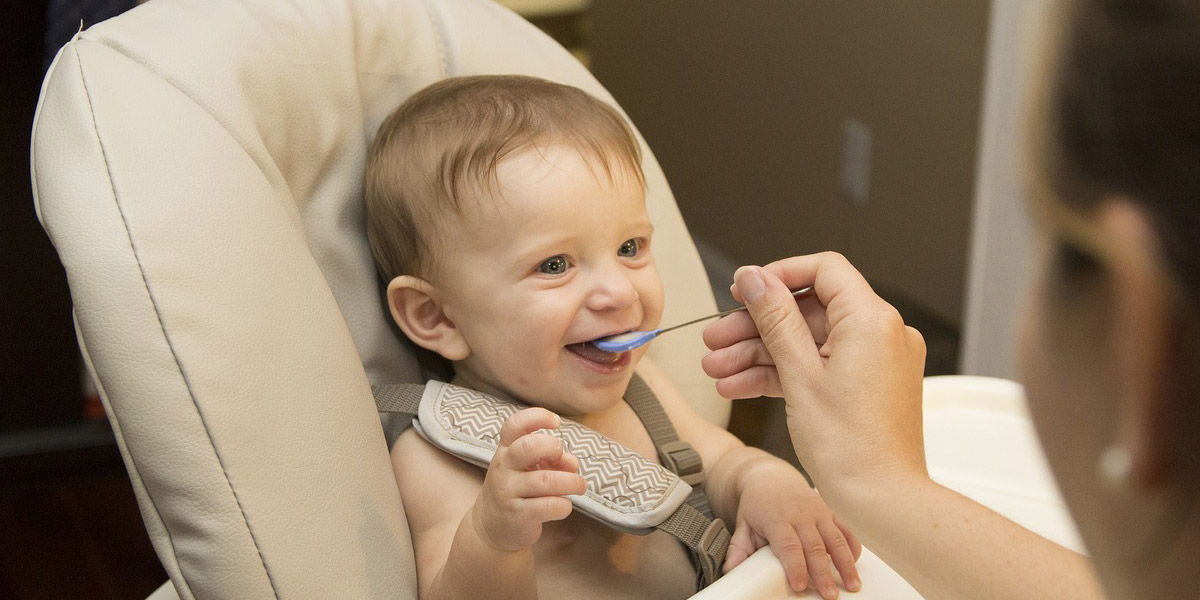
It is also important to take into account that the refusal of nighttime "snacking" occurs gradually: there are very few cases when a child stops eating at night and immediately starts sleeping 5-6 hours in a row. Usually, babies who are used to eating several times a night wake up out of habit, and it will take time to change this routine. First, the baby will ask for food half an hour later than usual, then an hour, a little later - two, and so on. Step by step, over several weeks, night sleep reaches 6-7 hours in a row. This joyful moment can come at 4 months or closer to 12 months: all babies are unique, and it's not scary or unusual for an infant to sleep much longer without food, while an older child keeps waking up to eat.
Advice
Dentists recommend abolishing nighttime feedings for children older than one year, as food leftovers in the mouth can damage baby teeth. This risk is minimal when breastfeeding.
Also, remember that your child has many other important needs. Perhaps he wakes up and calls you, not so much for food, but for comfort and closeness. What could be more reassuring and safer than the caring hands of parents who feed and cradle? feedings.
Perhaps he wakes up and calls you, not so much for food, but for comfort and closeness. What could be more reassuring and safer than the caring hands of parents who feed and cradle? feedings.
How to wean a child from night feeding: expert advice
Many parents are interested in how to properly wean a baby from eating at night so that it does not become a lot of stress for him. Especially if the baby stubbornly refuses to give up night feeding.
- Start the weaning process slowly and gradually. Slowly reduce your nightly breastfeeding time or give your baby less milk (mixture if formula-fed) from a sippy cup. Try to extend the intervals between
Important!
Under no circumstances should the issue of night feedings be turned into a battlefield. The “cry - stop - wean” method loosens the baby’s nervous system and can provoke severe stress.
- Make sure your child eats well during the day.
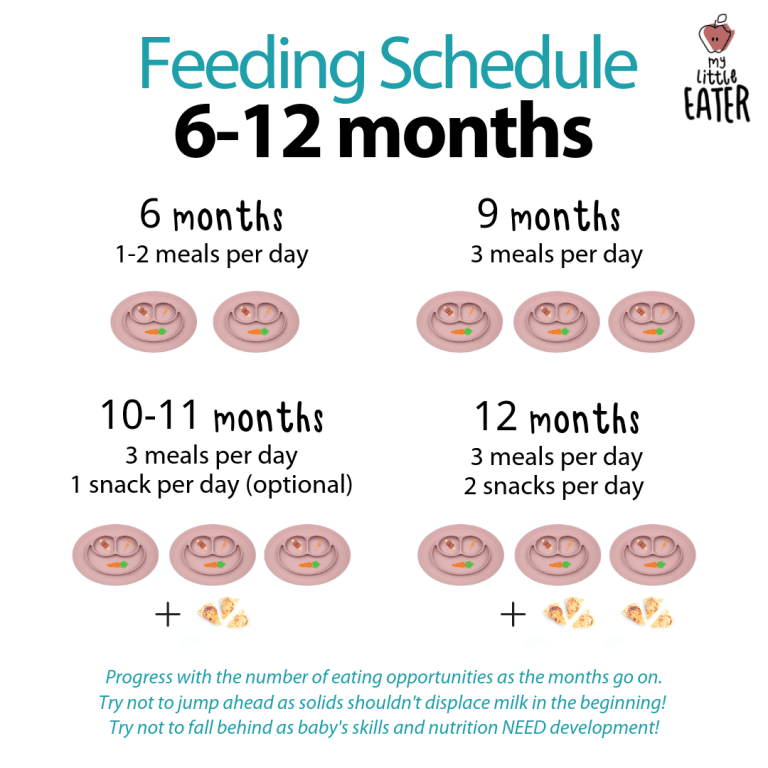 Babies become more active as they get older, and if they get carried away playing or walking, they may skip meals or not eat enough and then try to make up for it at night. Therefore, take scheduled breaks during the day for "silent feeding" in a place where nothing will distract the crumbs from eating.
Babies become more active as they get older, and if they get carried away playing or walking, they may skip meals or not eat enough and then try to make up for it at night. Therefore, take scheduled breaks during the day for "silent feeding" in a place where nothing will distract the crumbs from eating.
Advice
If you're not sure your child is eating enough, check their height by weighing them at the doctor's office.
- Try feeding your baby before bed. If a child goes to bed with a full tummy, they are less likely to wake up hungry in the middle of the night.
- Ask dad to get up at night with the baby. If an awakened baby hears your smell or the aroma of breast milk, this can provoke his appetite, even if the baby did not wake up because of hunger. If you sleep in the same room, it's best to move the crib to dad's side.
- Phase out feedings one at a time. When the baby wakes up to eat at night, go to him and reassure him, gently but firmly explain that now is the time to sleep, not eat.
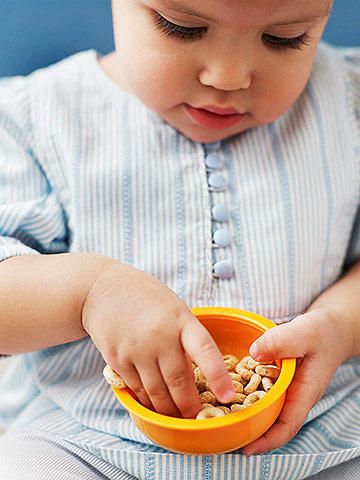 At the same time, pat and stroke the child on the back or tummy, but do not pick him up. Even if the baby does not yet understand your words, he gradually catches the meaning, and your presence and attention will be soothing to him.
At the same time, pat and stroke the child on the back or tummy, but do not pick him up. Even if the baby does not yet understand your words, he gradually catches the meaning, and your presence and attention will be soothing to him. - Try giving your baby water to drink. Babies may wake up at night not from hunger, but from thirst, especially in hot weather or in a room with dry air. If after half an hour the baby wakes up again, feed him, and if not, then he is full and satisfied.
- If the baby has been crying inconsolably when stopping night feedings for several days in a row, stop the attempt and return to your normal routine for a while. Let the baby calm down and start weaning him again in a week or two.
- Do not stop night feedings during the transition period. For example, when you are going to return to work or go on vacation without a baby. If your baby sees less of you during the day, try to hug and interact with him more in your free time. It is necessary that he clearly feels your connection and care, then the baby is less likely to seek solace in the middle of the night.
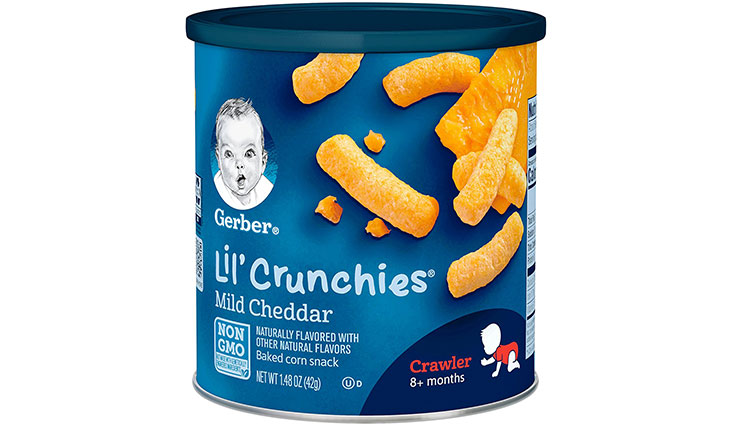
- If the baby continues to require night feeding, try to create conditions in which he does not want to eat. An excellent opportunity appears at 8-9 months, when the baby is already confidently eating complementary foods. To do this, move the usual bowl of porridge to the evening: this way the child stays full longer and may not ask for an extra portion of food at night.
Advice Do not give your baby new foods at night, introduce them only in the morning. Otherwise, you run the risk of observing the reaction to unfamiliar complementary foods instead of sleep. Also, do not give your child meat at night, it is hard to digest, can cause discomfort in the stomach and restless sleep. Also keep in mind that the decision to not feed at night depends in part on how it affects you. If you enjoy breastfeeding or drinking from a cup at night, there is no reason to stop: at a certain point, the baby will stop asking for food on its own. 1. How often should a newborn be fed? A newborn needs to be fed every 2-3 hours, i.e. 10-12 times a day. Further, the intervals between feedings gradually increase to 3-6 hours, and the child gets the opportunity to sleep all night. 2. How much should a child eat per day? The daily "portion" of food for the baby depends on his age and weight. From 10 days to 1.5 months, the baby needs such an amount of food, the weight of which is approximately 1/5 of the child's body weight. From 1.5 to 4 months - 1/6 of the baby's weight, from 4 to 6 months - 1/7, from 6 to 8 months - 1/8, from 8 to 12 months - 1/9. 3. What happens if you don't stop night feedings? Most likely, the child will eventually refuse them himself. Sources Physical development of the child by months Average customer rating 3 customer ratings Snapshot of community ratings 0-6 months Article 0 reviews Mother's milk is the main source from which the tiny body receives nutrients and builds the foundation of immunity. 0-6 months Article 0 reviews The minimum interval between births, according to doctors, is 3 years. Carrying and giving birth to a child, breastfeeding - all this is a burden on the female body. Let him fully recover and consider contraception for breastfeeding. Here are a few methods that might come in handy. 0-6 months Article Breastfeeding is a skill that absolutely every woman possesses at the level of reflexes. 0-6 months Article 0 reviews The baby's umbilical cord is the link between the baby and mother throughout life inside the mother's womb. 0-6 months Article Lochia is a natural postpartum discharge. They appear immediately after the placenta has passed and last for several weeks until the lining of the uterus is completely healed. 0-6 months Article The success of breastfeeding depends on several factors: the choice of a comfortable position for mother and baby, certain practice and proper attachment to the breast. 0-6 months Article 0 reviews To be or not to be cucumbers and potatoes in the menu of a nursing mother? What vegetables can be eaten while breastfeeding, and which ones should be limited? 0-6 months Article Intestinal dysfunction after childbirth is a problem that all new mothers face. 0-6 months Article The key to a successful start to breastfeeding is the correct latch on of the nipple. Follow tips to help your baby latch onto the nipple and floor properly 0-6 months Article 0 reviews The appearance of a baby in the house is accompanied by both joy and feelings of young parents . Each change in the behavior and condition of the baby alarms the mother, especially if it causes discomfort and tears in the baby. 0-6 months Article Breastfeeding is a process that has an extraordinary impact on the development and health of the baby. Since the relationship between the child and the mother is continuous, everything that has entered the body of a nursing mother will immediately end up in the baby's body. 0-6 months Article 0 reviews If breastfeeding is not possible, express with a breast pump or by hand. And we will tell you what and how to store breast milk. 0-6 months Article Fruit is one of the most important sources of vitamins for humans. 0-6 months Article 0 reviews The resumption of intimate relationships after childbirth is an ambiguous question. On the one hand, after such a long abstinence, you want to have sex as soon as possible, on the other hand, there are a number of nuances that prevent this. When you can have sex after childbirth and what precautions you should take - read further in the article. 0-6 months Article 0 reviews The problem of hair loss during lactation is quite common. 0-6 months Article 0 reviews Breast milk is the healthiest and healthiest food for a baby. It contains all the substances necessary for a small organism. 0-6 months Article 0 reviews A few proven methods to trim the belly after childbirth . Follow simple recommendations, and soon you will return to your figure, which was before pregnancy. But if you feel that lack of sleep prevents you from living and enjoying motherhood, and the baby is already physically ready for change, it's time to try switching to a daily routine. In any case, you should do what is best for you and your family.
But if you feel that lack of sleep prevents you from living and enjoying motherhood, and the baby is already physically ready for change, it's time to try switching to a daily routine. In any case, you should do what is best for you and your family. FAQ
 But some pediatricians, notably Richard Ferber [1], warn that unnecessary nighttime feedings can cause sleep problems. Also, food leftovers after late “snacks” can provoke the development of caries in milk teeth.
But some pediatricians, notably Richard Ferber [1], warn that unnecessary nighttime feedings can cause sleep problems. Also, food leftovers after late “snacks” can provoke the development of caries in milk teeth.
Related articles
Latest reviews
Recommended Articles
Artificial feeding of newborns: some tips
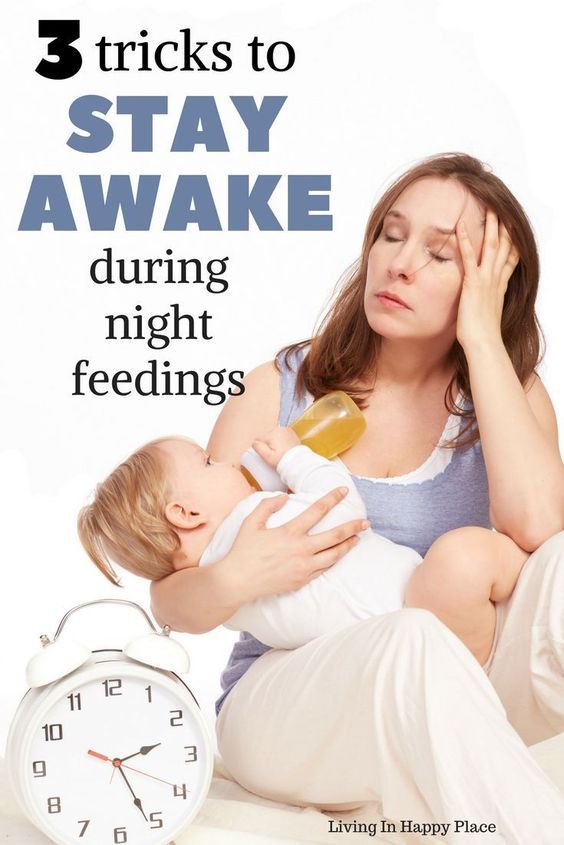 Therefore, breastfeeding is recommended by all pediatricians and neonatologists. This strengthens the bond with the mother and the immune system of the baby. However, it often happens that a young mother refuses breastfeeding. The reason for this may be a shortage or lack of milk or a doctor's recommendation.
Therefore, breastfeeding is recommended by all pediatricians and neonatologists. This strengthens the bond with the mother and the immune system of the baby. However, it often happens that a young mother refuses breastfeeding. The reason for this may be a shortage or lack of milk or a doctor's recommendation. Contraception during breastfeeding (HB): TOP-7 methods
The correct start of breastfeeding is the key to a long and trouble-free lactation
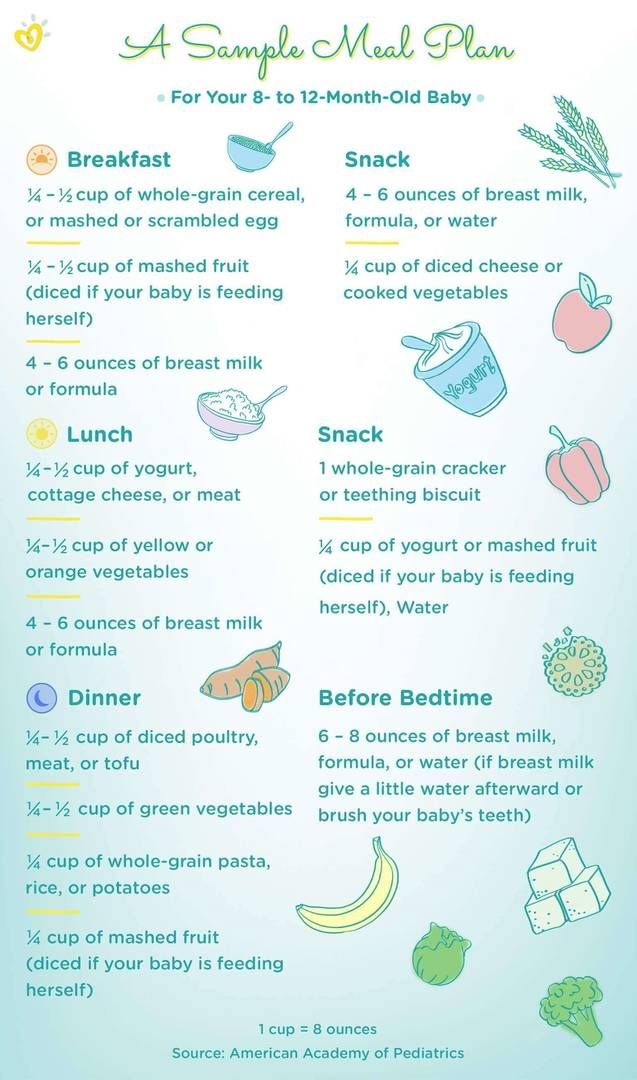 The problems faced by modern young mothers are much more often social and informational in nature, rather than physiological. Even a minimum of truthful information and self-confidence will help you start breastfeeding correctly and continue it for as long as your baby needs.
The problems faced by modern young mothers are much more often social and informational in nature, rather than physiological. Even a minimum of truthful information and self-confidence will help you start breastfeeding correctly and continue it for as long as your baby needs. How to care for the navel of a newborn?
Discharge after childbirth, or lochia: what a young mother needs to know
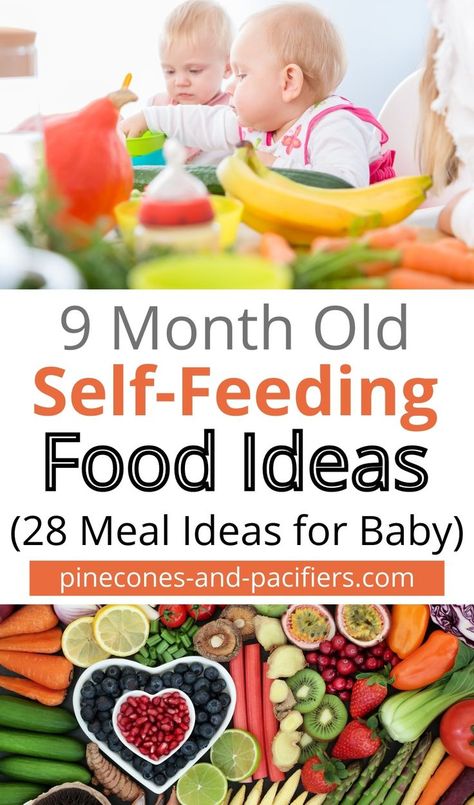 What do lochia look like at different stages, what is the norm, and in what cases should you sound the alarm? And is it possible to speed up postpartum recovery?
What do lochia look like at different stages, what is the norm, and in what cases should you sound the alarm? And is it possible to speed up postpartum recovery? Proper breastfeeding is the key to successful feeding.
What Vegetables Can I Eat While Breastfeeding?
Constipation after childbirth: what to do?
 This is not a pathology, but a completely normal, understandable and temporary state of the female body. Why there is constipation after childbirth, when bowel function is restored and what to do to eliminate discomfort - more on this later in the article.
This is not a pathology, but a completely normal, understandable and temporary state of the female body. Why there is constipation after childbirth, when bowel function is restored and what to do to eliminate discomfort - more on this later in the article. How can I help my baby latch onto the nipple?
Constipation in a newborn: what to do?
One such phenomenon is constipation in a newborn .
Alcohol while breastfeeding (LB): can I drink it?
Storing breast milk: TOP 5 tips on how to store it
What fruits can a nursing mother: nutrition while breastfeeding
Both mother and child need them. What fruits with HB can a nursing mother? And is it true that strawberries and citrus fruits should be excluded from the daily diet? We will try to answer these in our article.
When can you have sex after giving birth?
Hair loss during breastfeeding (HB): what to do?
This process is associated with a number of factors and is generally considered natural. Why does hair fall out after childbirth and how can I get rid of this problem? More on this later in the article.
How to increase the amount of breast milk?
How to remove the stomach after childbirth: TOP 8 tips




